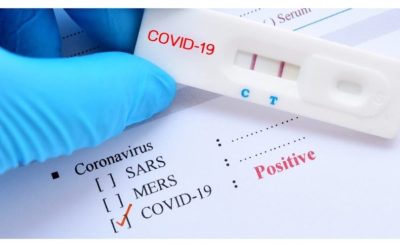Establishment Journal The Lancet Publishes Rare Dissenting Voice on COVID-19 Vaccines
To call COVID a 'pandemic of the unvaccinated' is 'far too simple,' Dr. Günter Kampf says.

All Global Research articles can be read in 51 languages by activating the “Translate Website” drop down menu on the top banner of our home page (Desktop version).
To receive Global Research’s Daily Newsletter (selected articles), click here.
Visit and follow us on Instagram at @crg_globalresearch.
***
A dissenting perspective from COVID-19 orthodoxy has found its way into one of the medical establishment’s most prestigious voices, with a letter by a German epidemiologist criticizing the narrative that COVID now represents a “pandemic of the unvaccinated.”
Dr. Günter Kampf is associate professor for hygiene and environmental medicine at the University Medicine Greifswald, Institute for Hygiene and Environmental Medicine in Germany. His letter, published in The Lancet’s November 20 edition, highlights “increasing evidence that vaccinated individuals continue to have a relevant role in transmission” of the virus, and therefore the idea that “the unvaccinated threaten the vaccinated” is “far too simple.”
“In the USA, a total of 10,262 COVID-19 cases were reported in vaccinated people by April 30, 2021, of whom 2,725 (26.6%) were asymptomatic, 995 (9.7%) were hospitalized, and 160 (1.6%) died,” Kampf explained. “In Germany, 55.4% of symptomatic COVID-19 cases in patients aged 60 years or older were in fully vaccinated individuals, and this proportion is increasing each week.”
“Historically, both the USA and Germany have engendered negative experiences by stigmatizing parts of the population for their skin color or religion,” Kampf concluded. “I call on high-level officials and scientists to stop the inappropriate stigmatization of unvaccinated people, who include our patients, colleagues, and other fellow citizens, and to put extra effort into bringing society together.”
Kampf elaborated on these concerns in an October 29 essay published by the Brownstone Institute. There he added that the vaccinated can contribute to the development of virus variants, and may actually accelerate the spread of COVID by changing their behavior after getting their shots.
“Vaccinated people usually behave in a more risk-taking way, they have more contacts, go to concerts and parties more often,” he explained. “They are no longer tested in Germany and are not quarantined. It is a carte blanche for an almost normal social life. If they become infected, they often have no or only mild symptoms and thus do not recognize their infection or recognize it too late. As a result, the expected wave among the vaccinated would hardly be visible.”
In the United States, a body of data suggests that the mass vaccination strategy for defeating COVID-19 has failed. The federal government considers more than 196 million Americans (59% of the eligible) to be “fully vaccinated” (a moving target given the vaccines’ temporary nature), yet ABC News reported in October that more Americans died of COVID-19 this year (353,000) than in all of 2020 (352,000), according to data from Johns Hopkins University.
Meanwhile, vaccine hesitancy persists thanks to unaddressed concerns about the vaccines’ safety, stemming largely from the fact that they were developed and released far faster than any previous vaccine.
Defenders stress that their development did not start from scratch, but rather relied on years of prior research into mRNA technology; and that one of the innovations of Operation Warp Speed was conducting various aspects of the development process concurrently rather than sequentially, eliminating delays unrelated to safety. However, those factors do not fully account for the condensing of clinical trial phases — each of which can take anywhere from 1-3 years on their own — to just three months apiece.
While cases of severe harm reported to the federal Vaccine Adverse Event Reporting System (VAERS) after taking COVID shots represent less than one percent of total doses administered in the United States, a 2010 report submitted to the U.S. Department of Health & Human Services’ (HHS) Agency for Healthcare Research and Quality (AHRQ) warned that VAERS caught “fewer than 1% of vaccine adverse events.” May reporting from NBC News quotes several mainstream experts acknowledging “gaps” in federal vaccine monitoring.
Additionally, many of the unvaccinated simply consider it unnecessary in light of significant evidence that immunity from prior COVID infection lasts longer and is more durable than immunity from vaccination, while religious and/or pro-life Americans harbor moral objections to taking something developed and/or tested with the use of fetal cells from aborted babies.
*
Note to readers: Please click the share buttons above or below. Follow us on Instagram, @crg_globalresearch. Forward this article to your email lists. Crosspost on your blog site, internet forums. etc.
Featured image is from LifeSiteNews

